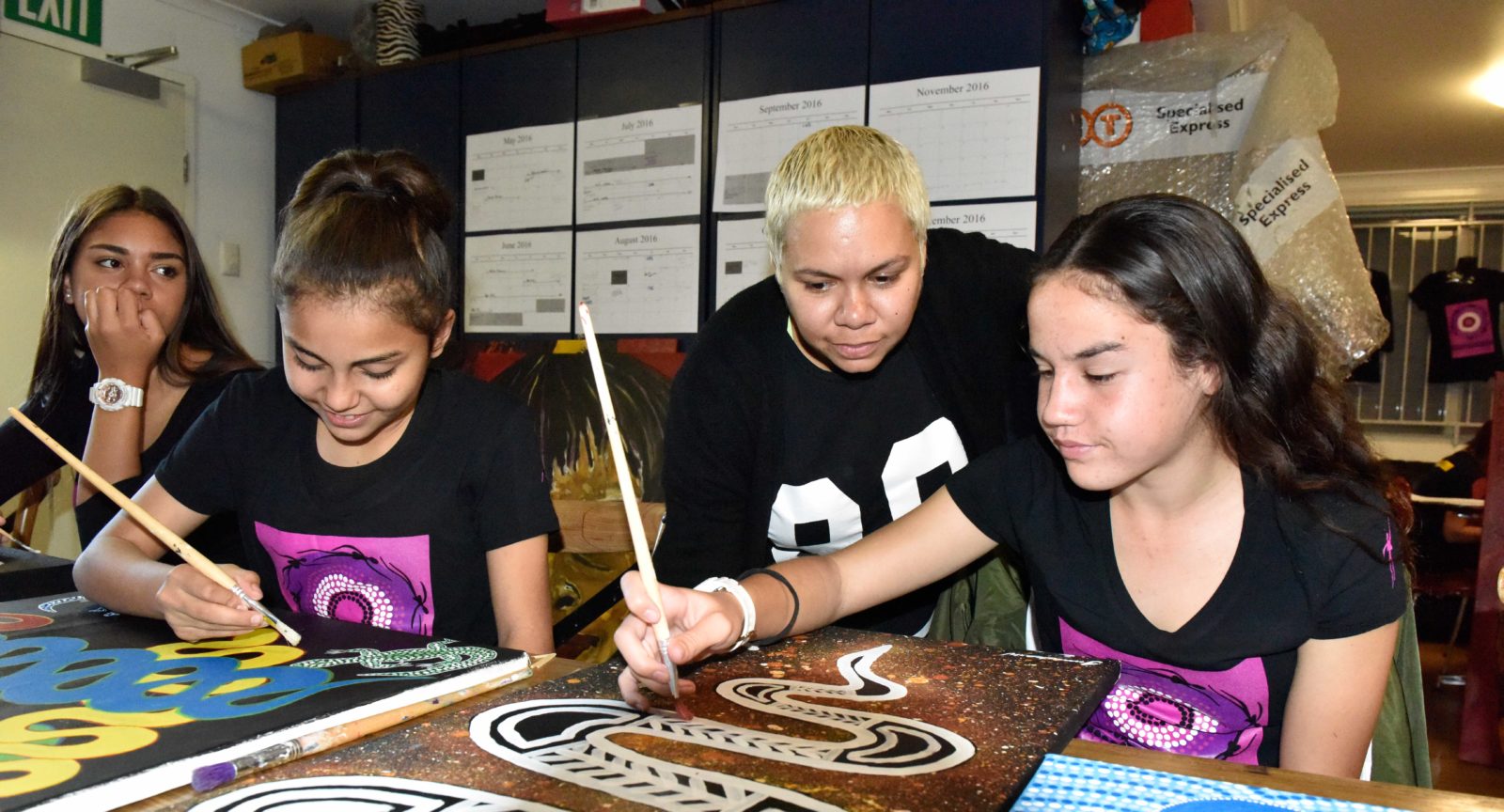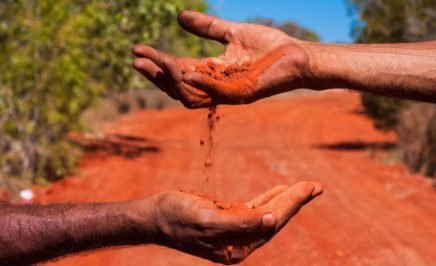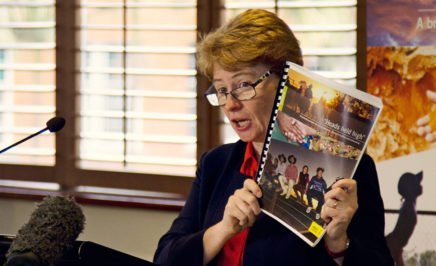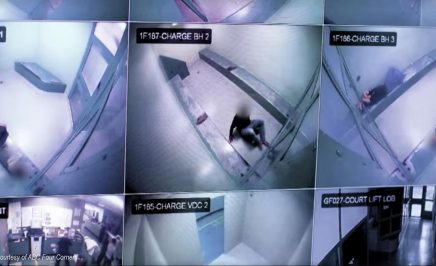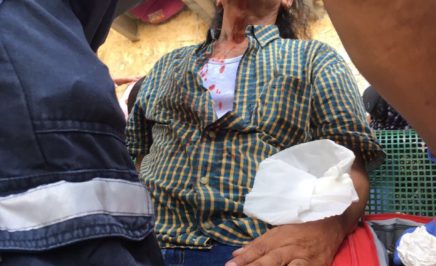A year on from the Four Corners episode exposing the torture and abuse of Indigenous boys at Don Dale Youth Detention Centre in the Northern Territory, independent inquiries reveal Indigenous girls are also being abused in centres around Australia.
The number of Aboriginal and Torres Strait Islander girls in detention is rising. According to the Australian Institute of Health and Welfare, 65% of girls in detention are Indigenous and they are 27 times more likely to be locked up than non-Indigenous girls.
Evidence suggests many girls in youth detention across Australia, in particular Aboriginal and Torres Strait Islander girls, are victims of violence, abuse and disadvantage. The Change The Record Coalition recently reported that many Indigenous girls are involved in the justice system due to prior violations of their human rights.
Following a visit to Australia earlier this year, UN Special Rapporteur on the Rights of Indigenous Peoples, Victoria Tauli-Corpuz, acknowledged the rate of incarceration of Aboriginal women and girls is growing fast and needs to be urgently addressed.
Abuse in detention
Indigenous girls face discrimination in the justice system on the basis of their race and gender. This is shown in the most brutal form by the abuses they endure in detention.
Sexual abuse and discrimination
Girls in youth detention in the Northern Territory and Queensland have reported sexual abuse and harassment by staff. Concerns have been raised in Western Australia and Victoria over attitudes of staff and other detainees towards girls in detention, with jokes about violence against women, threats of rape, and derogatory language directed towards women not uncommon.
“Sometimes at night I would be awake and the guards would come around and I would pretend I was asleep. The guard would then shine the torch up and down my body. Some of the male guards would also say creepy things to me like ‘nice bra’.”
Statement of AG, Don Dale, Northern Territory Royal Commission, 2017
“Some staff stated that the girls were needy, manipulative, moody, and that they would be much easier to deal with if they behaved more like the boys. One officer even stated that he thought it would be preferable if the girls solved their issues by fighting like the boys did.”
Inspector of Custodial Services in WA, Banksia Hill, 2015
Strip searching: cough and squat
Evidence from Queensland and the Northern Territory shows girls being asked to undress and then cough and squat during searches. This not only goes against international human rights standards – which state intrusive searches should be undertaken only if ‘absolutely necessary’ – but can often re-traumatise girls who have experienced previous abuse.
“They told me they needed to ‘strip search’ me. No one explained why. I said, ‘No, I don’t want to do it’… I had to take off all my clothes and then squat and cough – I felt really embarrassed and weird.”
Don Dale, NTRC Evidence, Statement of AN, 2017
“[O]ther workers make you take your time and cough and squat, and everything. Even if you had your period, they still made you do it. If you say no, they just smash you to the floor. Three staff come in and they just hold you down and check you.”
Brisbane Youth Detention Centre, Sisters Inside Submission to Queensland Independent Inquiry into Youth Detention, 2016
Solitary confinement
By law, girls and boys should be held separately in detention. Due to the smaller number of girls in detention and inadequate facilities, girls are often held in ‘separation’ (solitary confinement) and may be subject to ‘overly restrictive regimes’.
Children must never be held in solitary confinement and the practice is prohibited in international law.
“In one case, the situation was allegedly so dire for one young female that after 72 hours in an observation cell, and finding her soaked in her own urine, staff took her to a holding cell in the centre’s admissions area.”
Banksia Hill, Inspector of Custodial Services in WA, 2017
Indigenous-led programs for girls
Aboriginal and Torres Strait Islander communities have the answers when it comes to helping their kids out of the quicksand of the justice system. Independent reviews of detention in Queensland, Western Australia and Victoria recommend local governments support tailored programs and services for girls. There are many Indigenous-led prevention, diversion and rehabilitation programs that can have a huge impact on girls’ lives.
Young Luv
Young Luv is a prevention program for Aboriginal girls aged 13 to 18. Run by the Aboriginal Family Violence Prevention and Legal Service, Young Luv creates a safe place for women and girls to draw on cultural strength to build resilience and coping strategies, understand healthy relationships and make positive decisions.
Deadly Sista Girlz
Delivered by strong Aboriginal and Torres Strait Islander role models through the Wirrpanda Foundation, Deadly Sista Girlz helps Aboriginal and Torres Strait Islander girls build their self-esteem and identity, and become leaders in their community.
Read about Josie Janz, a Deadly Sista Girlz mentor.
Sisters Inside
For almost a decade Sisters Inside have run weekly art workshops for Aboriginal and Torres Strait Islander girls, to connect with their culture and be mentored by older women. These workshops culminate in auctions to raise funds for the program.
Yiriman Project
The Yiriman Project is an Indigenous-led cultural program for kids at risk of being caught in the justice system. The Yiriman Project contributes to the healing of young people, provides an opportunity to develop and assert culture, language and bush skills, and creates meaningful employment that values and maintains culture.
Read about Sarah’s life-changing experience with the Yiriman Project.
How you can help
Investment and support of Indigenous-led programs must form part of a national plan to end the abuse and overrepresentation of Aboriginal and Torres Strait Islander children in detention. Indigenous girls must not be neglected any longer.
